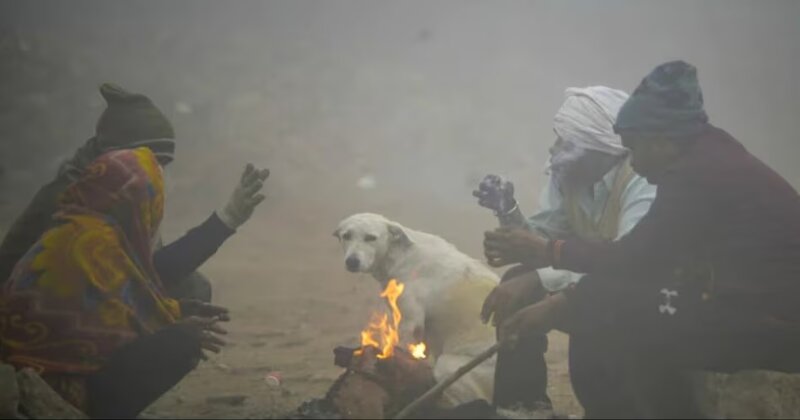
A recent study conducted by the Indian Institute of Science Education and Research (IISER) indicates a significant rise of 506% in the frequency of cold waves in India, even amid the context of global warming. The cold waves are not only increasing in number but are also becoming longer and more intense. The research attributes these cold waves to stagnant weather systems, specifically atmospheric blocking conditions.
The surge in cold waves has raised concerns as it has led to a higher mortality rate in India compared to heat waves. The study points out that the severity of cold wave conditions, especially in northern India, poses substantial risks of hypothermia and frostbite, particularly among vulnerable groups such as children and the elderly. The research, titled “Synoptic dynamics of cold waves over north India: Underlying mechanisms of distinct cold wave conditions,” was carried out in collaboration with the National Institute for Space Research in Brazil. Dr. Raju Attada, a professor and the principal investigator at IISER Mohali, highlighted the alarming statistics, stating, “Between 2010 and 2018, there was a shocking 506% increase in the number of cold waves in India, despite global warming.”
The study identifies atmospheric blocking conditions as a key factor in the prolonged and intensified cold wave episodes. Such atmospheric blocks facilitate the invasion of extremely cold air from northern latitudes into northern India, exacerbating cold wave conditions. Additionally, upper air weather systems over North India contribute to the subsidence of cold air, intensifying the severity of cold waves and cold day conditions. The research emphasizes the severe impact of these cold waves on human and animal populations, highlighting the risks of hypothermia and frostbite during such extreme weather events. This poses significant challenges to human health, energy consumption, agriculture, and transportation in northern India. In 2003, a cold wave lasting 18 days resulted in the tragic deaths of 1003 people in Bihar, Jharkhand, West Bengal, Uttar Pradesh, parts of Madhya Pradesh, and Uttarakhand.

Post Your Comments